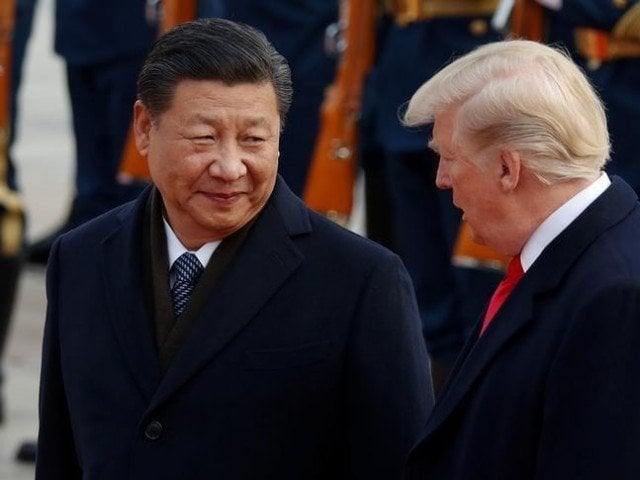
With countries like the US, China, the EU and Canada all taking retaliatory measures, which may lead to tariff aggravation, the impact on Pakistan is likely to be benign due to limited integration with the global supply chain. However, things may change, if the situation escalates.
Consequent to fears of the trade war, some experts anticipate only a limited impact on the global economy.
Tit-for-Tat
In line with his agenda of ‘America First’, US President Donald Trump introduced tariffs on its allies, which sparked a global trade war as the allies responded with retaliatory tariffs.
Tariffs of 25% on steel and 10% on aluminium imports were decided in March, and in a striking act, they came into effect on June 1 that targeted close allies Canada, Mexico and the European Union.
A day later, the industrialised countries announced counter-balancing measures. EU Chief Jean-Claude Juncker said the 28-nation bloc would introduce a settlement dispute with the World Trade Organisation (WTO).
In the meantime, the US and China also concluded third round of trade talks without a breakthrough. The White House has announced tariffs on $50 billion worth of Chinese goods. China will not take the measures lightly and has promised to hit back with tariffs on US goods, which will escalate the trade war.
‘Pakistan unlikely to suffer from US-China trade war’
Global impact
Trump’s unpredictable and erratic tariff regime has created perceptions of a downturn in global trade, but some experts do not expect a large-scale impact.
The world is aware of the consequences of Smoot-Hawley Tariff Act of 1930, adding to the considerable strain in international economic climate.
The punitive tariffs of that time, however, gave a much greater weight to the overall import volume as compared to current tariffs, which takes a much lesser proportion of the trading volume.
In one of its latest editions, The Guardian has reported that exports of steel and aluminium from the EU to the US make up just 0.3% of worldwide goods and represent a tiny 0.05% of the bloc’s GDP.
Thus, the tariffs on just $60 billion out of trillions are unlikely to disrupt the global trade.
Speaking about the impact of the trade war on global economy, former WTO ambassador Dr Manzoor Ahmed told The Express Tribune that the recent tariff measures and the 1930s tariff war were so far not comparable in size.
He said in the 1930s, the US imposed tariffs on more than 20,000 products and for over 3,000 products, tariff rates were increased by 60%, which meant quadrupling previous tariff rates.
However, the current tariffs are limited in scope and they just apply to two products worth about $60 billion of imports, which means covering about 2% of US imports of about $2,400 billion, he added.
Ahmed said the world is far more globalised now than it was before, which will not allow the situation to go out of hand. All parties are aware of the consequences, which gives the reason to speculate that the current trade spat will be resolved through ongoing negotiations rather than aggravating towards a full-fledged trade war.
US secretary in China to avert trade war
Impact on Pakistan
Although the global climate has been strained by the ongoing talks on the trade war, Pakistan remains far from the melee.
It is not likely to be disrupted by the split between the western alliance as we export very little of the products that are targets of the tariffs. We have a very small volume of trade with the US with no trade in steel and aluminium.
Speaking on the impact on Pakistan, Ahmed said, “Pakistan will hardly feel any impact in the short term as the tariffs are mostly on products not of our interest.”
He said if the tariff war escalates to products such as textiles and clothing, “we could gain some market share at the expense of other countries.” However, if the tariff war results in a global recession, Pakistan’s economy could suffer as happened in the 2008 economic crisis, he added. Pakistan is not a major international economic power and thus has a very small amount of trade with the US, largely favouring Pakistan in this scenario.
G7 divides to G6 plus Trump over trade war threat
NUST Dean Ashfaque Hasan also echoed similar sentiments, adding that the US is not using any Pakistani products, which are in surplus. “Pakistan’s total trade with the US has a value of $4.5 billion, which does not matter in the overall trade relation with the rest of the world,” he said while talking to The Express Tribune.
He said the administration is talking about a huge number, which is in billions and the developing countries are not the bone of contention here. The main target of the US is China and EU and thus Pakistan should not be over-concerned on the ongoing global trade war as it is not so much integrated with the global value chain.
Published in The Express Tribune, June 10th, 2018.
Like Business on Facebook, follow @TribuneBiz on Twitter to stay informed and join in the conversation.





1719053250-0/BeFunky-collage-(5)1719053250-0-270x192.webp)











COMMENTS
Comments are moderated and generally will be posted if they are on-topic and not abusive.
For more information, please see our Comments FAQ